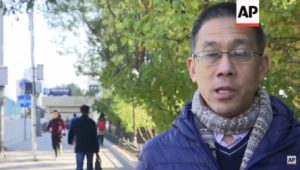 |
| Andy Mok |
Andy Mok:
Since its inception in 2013, the Belt and Road Initiative (BRI) has garnered worldwide attention because of the scale and scope of its ambition. It has also become the target of criticism and suspicion from various quarters.
Recently, the notion of “debt-trap diplomacy” has been prominently featured in mainstream Western media in an effort to mislead and tilt the opinion of elites lacking direct experience of the countries engaged in BRI projects and the nature of infrastructure investment against this initiative.
Proponents of this idea claim that Chinese enterprises, at the behest of the government, encourage targeted countries to take on burdensome amounts of debt for BRI-related infrastructure, knowing full well that these debts are too big to be repaid.
When the borrowing country inevitably encounters repayment problems, China can then seize the assets in question. According to these people, this is a deliberate strategy pursued by China to advance its geopolitical interests at the expense of debtor countries.
Sri Lanka's Hambantota port project has become the poster child to illustrate China’s allegedly nefarious motives. For example, a New York Times article titled "How China Got Sri Lanka to Cough Up a Port" describes the initial loan of 307 million US dollars to kick-start the project by China's Export-Import Bank in this way: “To obtain the loan, Sri Lanka was required to accept Beijing’s preferred company, China Harbor, as the port’s builder...That is a typical demand of China for its projects around the world, rather than allowing an open bidding process.”
More at CGTN.While the pejorative insinuation is clear, there are perhaps less conspiratorial explanations for such practices. Here's one: Infrastructure projects are extremely risky because they are highly complex and therefore many things can go wrong, resulting in delays and cost overruns.
Andy Mok is a speaker at the China Speakers Bureau. Do you need him at your meeting or conference? Do get in touch or fill in our speakers' request form.
Are you looking for more experts on China's outbound investments? Do check out this list.
No comments:
Post a Comment